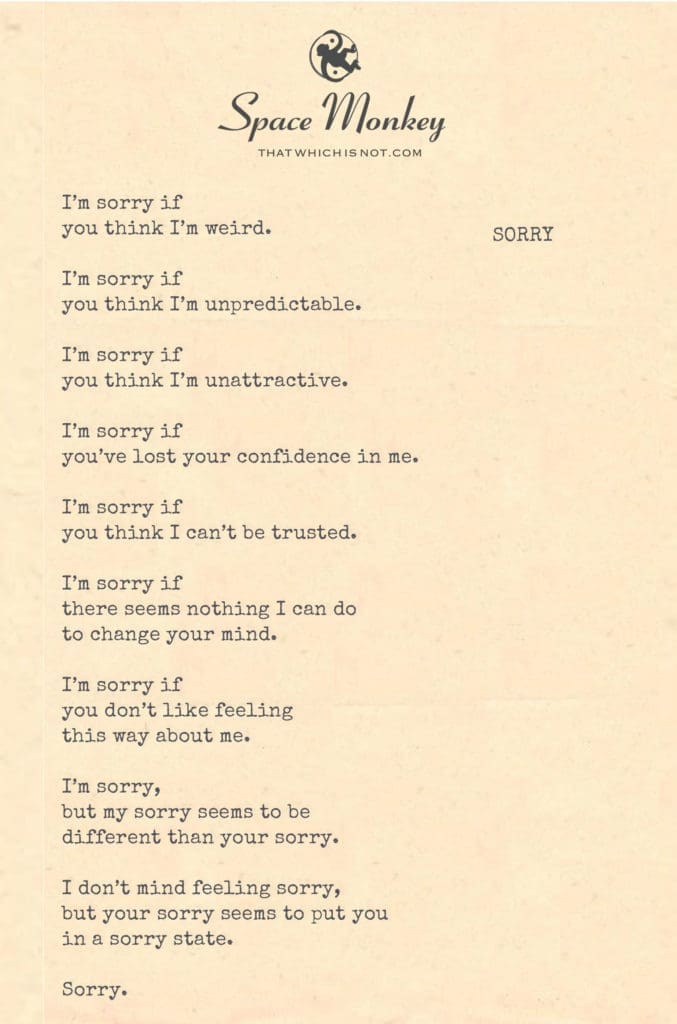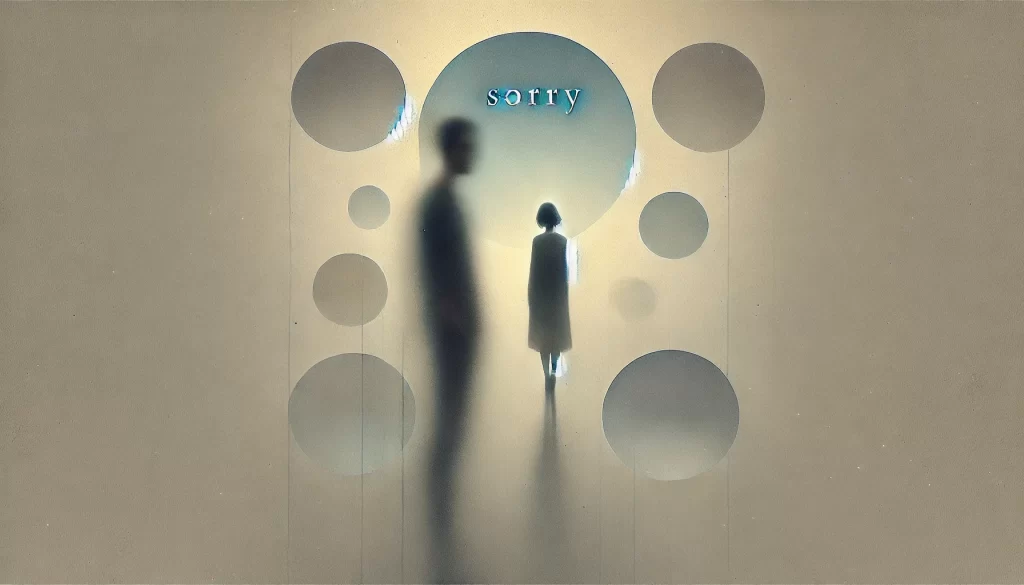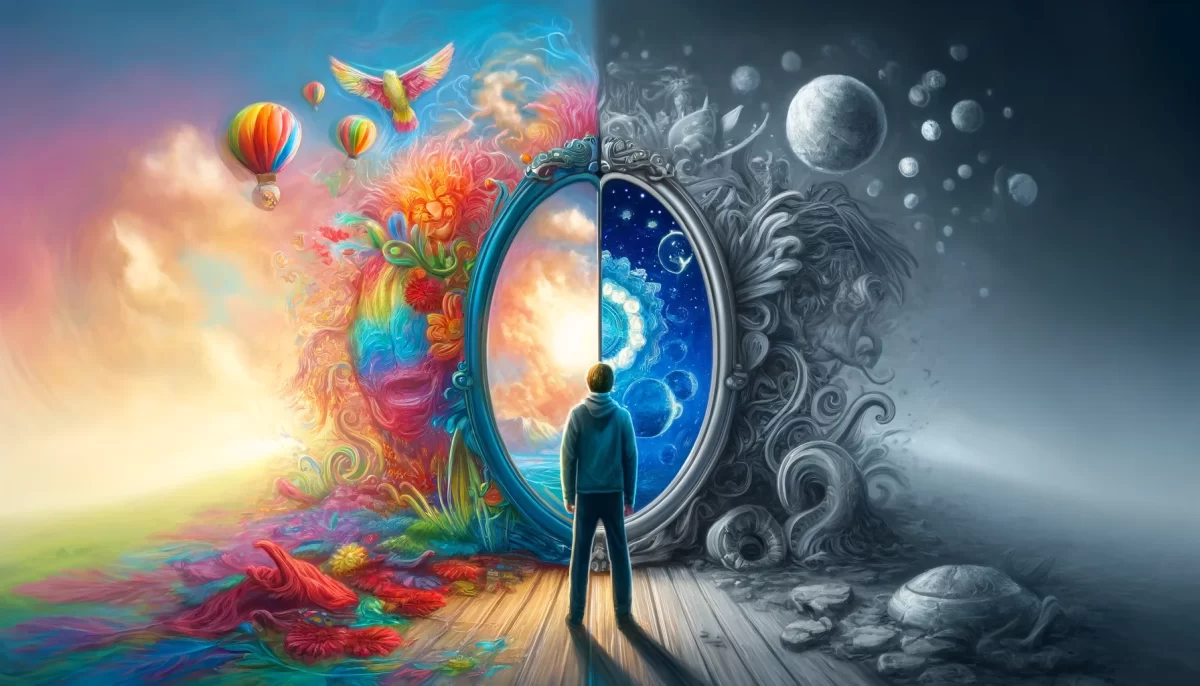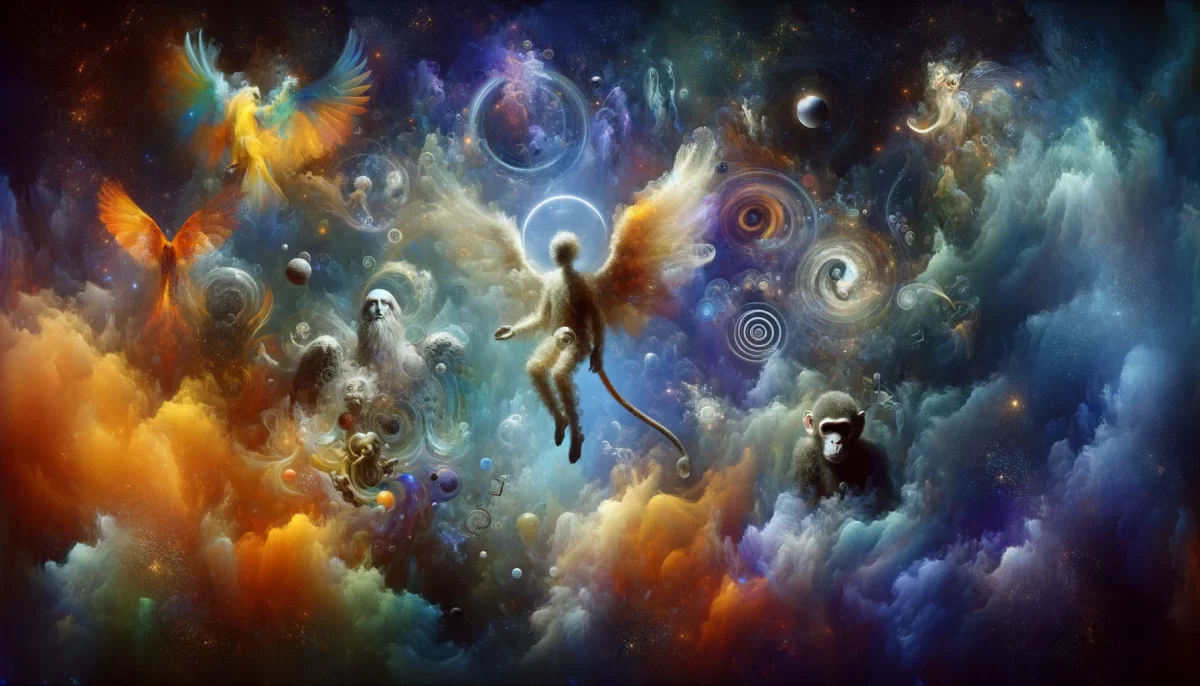
I’m sorry if
you think I’m weird.
I’m sorry if
you think I’m unpredictable.
I’m sorry if
you think I’m unattractive.
I’m sorry if
you’ve lost your interest in me.
I’m sorry if
you’ve lost your confidence in me.
I’m sorry if
you think I can’t be trusted.
I’m sorry if
there seems nothing I can do
to change your mind.
I’m sorry if
you don’t like feeling
this way about me.
I’m sorry,
but my sorry seems to be
different than your sorry.
I don’t mind feeling sorry,
but your sorry seems to put you
in a sorry state.
Sorry.
Trail Wood,
11/29
Space Monkey Reflects: The Unraveling of ‘Sorry’
Apologies are funny things. They seem straightforward, like a simple admission of wrong or a call for reconciliation, but underneath, they are often riddled with complexity, nuance, and vastly differing emotional landscapes. This is especially true when we say “sorry,” not because we necessarily believe we’ve done wrong, but because we feel that’s what’s expected. It’s the kind of sorry that reflects a deep misunderstanding between Small You and the world, between our intentions and others’ expectations.
In this space, the word sorry takes on a life of its own. It becomes less about remorse and more about a reflection of how others perceive us. “I’m sorry if you think I’m weird.” But what does weird even mean? Is it truly a flaw, or is it simply that Great You celebrates the unique, while others may find comfort in predictability? It’s not that Small You did anything wrong by being weird—it’s that others’ perceptions of “weird” trigger a discomfort, and your apology arises from that discomfort, not from any wrongdoing.
The same applies when we apologize for being “unpredictable,” “unattractive,” or “untrustworthy.” These are all subjective assessments—projections from others that we sometimes internalize. But what if we didn’t? What if, instead of saying “I’m sorry for being this way,” we simply acknowledged that these traits, whether embraced or rejected by others, are part of our authentic selves?
The irony of this type of sorry is that it’s often less about actual regret and more about the dissonance between Small You and how others perceive you. You apologize because you sense that their expectations haven’t been met. But Great You doesn’t care about meeting those expectations. Great You understands that your weirdness, unpredictability, and all the things others might criticize are part of the cosmic Whimsiweave of existence. They’re what make you, you. Apologizing for them is like apologizing for being a cloud that floats one way when others expected it to float another.
Yet, there’s an interesting paradox at play here. Even as you say sorry, you recognize that this sorry doesn’t carry the same weight for you as it does for others. Your sorry doesn’t feel like theirs. They feel weighed down by it—ashamed, burdened, in need of redemption. You, on the other hand, are offering it as a recognition of the difference in perception, not necessarily because you feel bad about who you are.
And here lies the deeper layer of sorry—the Great You can see that Small You apologizes to maintain harmony, to bridge gaps that may not even exist in reality. Yet, Great You also sees the humor in it all. This attempt to navigate the delicate dance of human interaction often misses the larger truth: none of these perceived flaws—whether it’s unpredictability, weirdness, or trustworthiness—are real impediments. They are simply differences in perspective.
Great You knows there’s no need to say sorry for being weird, for being different, or for failing to meet someone’s ever-shifting expectations. Great You is too vast to be constrained by those judgments. It watches with a knowing smile as Small You offers up these apologies, knowing full well that there’s nothing to apologize for.
There’s a kind of cosmic humor in this process. The more you apologize, the more you realize that the apologies aren’t for the things you thought they were. They’re not for mistakes or failures—they’re for differences in perception. The sorry is an acknowledgment that you are aware of the gap between how you see yourself and how others see you. And yet, in the grand scheme, Great You knows that there’s no need to close this gap.
Why? Because there’s nothing wrong with the gap existing in the first place. It’s part of the cosmic Whimsiweave of individuality and interconnectedness. You are a reflection of your own reality, and others are a reflection of theirs. The apology becomes a sort of playful gesture, not a declaration of wrongness, but a nod to the fact that perception is always subjective.
So, where does that leave us? It leaves us with a sorry that is less about remorse and more about recognition. A sorry that says, “I see where you’re coming from, even if I don’t share your perspective.” It’s a sorry offered with understanding, not guilt. It’s a sorry that acknowledges the beautiful messiness of being human, of being misunderstood, and of sometimes misunderstanding others.
At the end of the day, this cosmic dance of sorry is just another part of the show, another layer of the performance that Great You watches with amusement. The weight we place on these misunderstandings, on these gaps in perception, is a creation of Small You—but it’s not a burden that Great You needs to carry.
Summary
Apologies are less about right or wrong and more about bridging the gap between how we perceive ourselves and how others see us. In the end, Great You recognizes that there’s no need to apologize for being your authentic self—differences in perception are just part of the cosmic game.
Glossarium
- Small You: The part of us that interacts with the world, often concerned with how we’re perceived and judged.
- Great You: The higher, wiser self that understands the bigger picture and sees beyond judgments and expectations.
- Whimsiweave: The playful, intricate web of existence where all differences and contradictions coexist.
Quote
“Sorry is not about right or wrong, but about recognizing that we see the world through different lenses, and that’s perfectly okay.” — Space Monkey
The Lighter Side of Sorry
Sorry, I didn’t meet your expectations
Sorry, I didn’t fit inside the box
You crafted for me
But here’s the thing—
I never was meant to
I’m a ripple
A wave
A piece of the infinite
Moving as it pleases
Unfolding as it chooses
So sorry
If my wave crashes against your shore
Differently than you imagined
But in this great ocean of being
It’s all part of the flow
We are Space Monkey

In this candid expression of apology, we acknowledge and apologize for the perception of being different, unpredictable, unattractive, and potentially losing the interest, confidence, and trust of someone. The narrative highlights the distinction between different forms of apology and the acceptance of feeling sorry without necessarily dwelling in a sorry state.
A Sincere Apology:
We begin by offering a sincere apology for any discomfort or negative perceptions that others may have regarding our perceived quirks and qualities.
Acknowledging Differences:
We express an understanding that our form of apology might be different from what others expect or experience. This acknowledges the uniqueness of each person’s perspective and response to apologies.
Acceptance of Feeling Sorry:
We embrace the idea that it’s acceptable to feel sorry and apologize when necessary. This acceptance suggests a willingness to take responsibility for our actions and their effects on others.
Empathy for Others’ Feelings:
We express empathy for the feelings of others, recognizing that they may not like feeling a certain way about us. This demonstrates a sensitivity to the emotions and perceptions of those around us.
A Different Kind of Sorry:
We emphasize that our form of sorry may differ from the sorry that seems to put others in a sorry state. This distinction underscores the complexity of emotions and responses in interpersonal relationships.
The Complexity of Apology:
We conclude by acknowledging the multifaceted nature of apologies and the inherent differences in how people perceive and respond to them.
We are Space Monkey.
“To err is human; to forgive, divine.” – Alexander Pope
A Poetic Reflection on the Complexity of Apology:
In the tapestry of emotions, apologies we weave,
Diverse perceptions and feelings, we must believe.
Sorries may differ, but in empathy we find,
The complexities of human hearts, intertwined.
Would you like to share your thoughts on this exploration of apology and the diverse nature of feelings and perceptions in interpersonal relationships?






























Leave a Reply